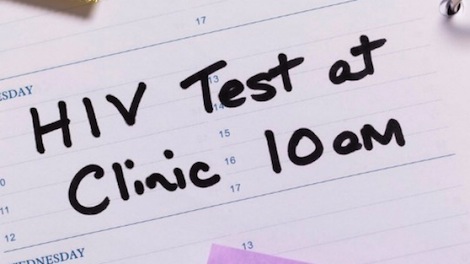Mental health counselor takes lessons learned from “AIDS Competent Churches and Church Leaders” certification and starts the University of Dubuque’s first official HIV/AIDS education, testing, and counseling program.
The following is the second article of a February 7–March 7, 2013, series of reflections from Johnson C. Smith’s first annual HIV competency training conference. New articles every Thursday! By Tabitha BartelmeIf you’re anything like I was, you haven’t heard much about HIV/AIDS outreach and advocacy within the church. Sure, I knew about the Presbyterian AIDS Network (PAN), knew they were doing some good and vital work, but I had no clue that a church-wide movement was already starting to emerge.
Some months ago, I emailed PAN looking for information on how to get HIV testing at the University of Dubuque where I work as a mental health counselor. Within an hour after sending my message, I had several emails from members of PAN and from the PC(USA) Office of Public Witness, all offering their support and guidance. They encouraged me to participate in the “AIDS Competent Churches and Church Leaders” conference and certification program, hosted by Johnson C. Smith Theological Seminary.
So, I went. I went to learn more about the church’s view on HIV/AIDS outreach, education, testing, and counseling. I expected your typical conference. What I didn’t expect were all the friendships I formed—not just the exchange of business cards and emails accompanied by well-intentioned promises to contact one another, promises known by all parties to be polite lies—but exciting connections across the church that are deepening how I do outreach. Because of the training and these relationships, I am adding spiritual guidance to my harm reduction approach to counseling.
All I had done was send an email. But somehow that email landed me in a board meeting with the cabinet members of my Presbyterian-affiliated college, as I proposed HIV testing and counseling for our campus. The conference not only put me in that boardroom; it gave me the language to make my case—and the confidence to drive it home. After an hour of intense questioning, they approved my proposal unanimously.
Now, students are getting the help they need. We are all impacted by HIV/AIDS in different ways: none of us are left untouched. My efforts are small; it’s a small campus. But these students come from all over the world. Some will be artists; others will be teachers or doctors or engineers or ministers. Some will be parents; all have families, friends, and loves. And they will take the “seeds” I give them and “plant” them elsewhere. Some will do this intentionally. Others won’t even know the seeds are there, like little burs hooked to their clothing, scattered unawares.
But my work has just begun. Now that testing has been approved, I would like to create an annual testing day that is advertised all over campus. (We have held one testing day, and I still hope to make it annual.) I have created a course on HIV/AIDS to be offered for college credit during J-term 2014. I have included a service-learning component, where students will do outreach and assist communities.
I want to thank JCSTS, PAN, and the Office of Public Witness for the opportunity and scholarship to attend this conference. I saw many people empowered by having the opportunity to speak on their experience living with HIV or AIDS. I saw people empowered by being given a platform to speak about loved ones affected by HIV or AIDS. I saw people empowered by being given medically accurate information about HIV/AIDS. I saw people empowered by being given support from a higher power in their work surrounding HIV/AIDS.
Now I get to see my students empowered in all the same ways.
Read more articles in this series.
_______________________________
AUTHOR BIO: Tabitha Bartelme has a Doctorate in Counseling Psychology. While earning this degree, she worked as a coordinator for an Adolescent Pregnancy Prevention program implementing an HIV prevention curriculum. She says that this experience created a passion for educating others on the impact of HIV/AIDS. She is now a member of PAN and works at the University of Dubuque as a Mental Health Counselor and an HIV tester and counselor.








